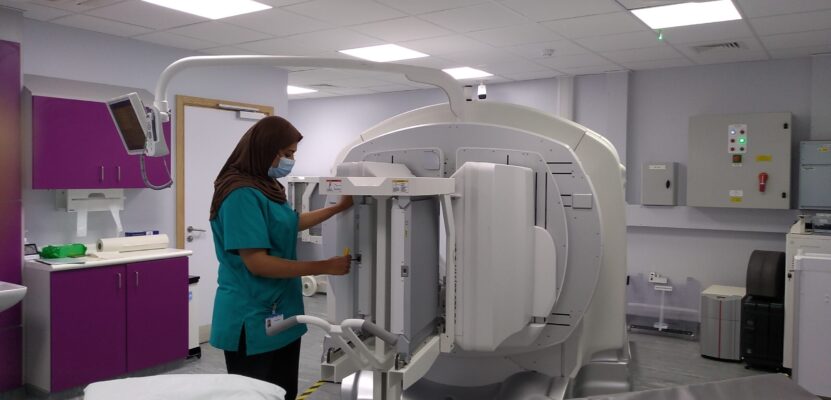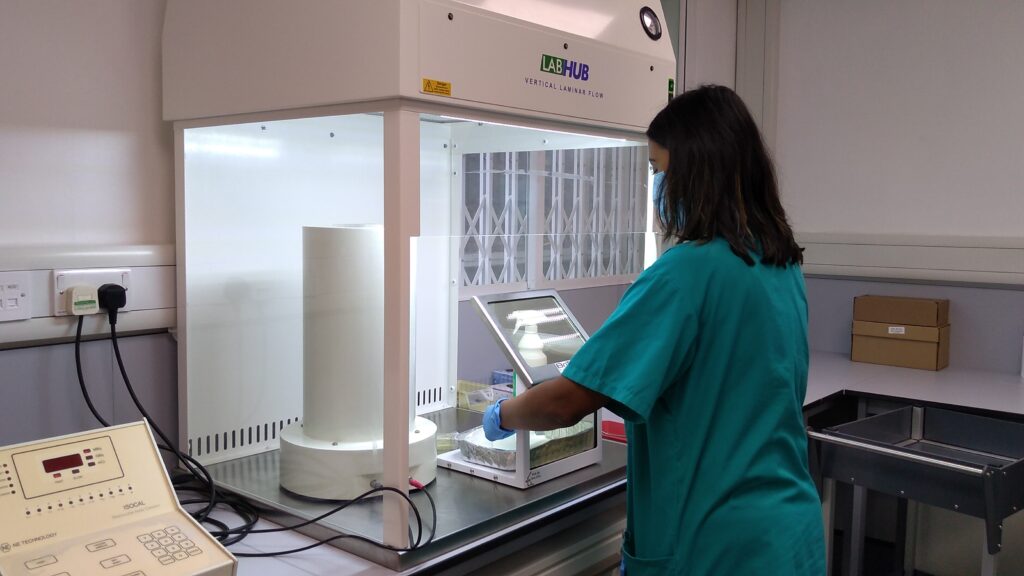
The cancer centre at Mount Vernon provides specialist nuclear medicine services to a wide catchment, covering North-west London and Hertfordshire, as well as parts of Thames Valley and Bedfordshire.
The nuclear medicine service comprises a multi-disciplinary team of clinical scientists and physicists, nuclear medicine radiographers and clinical technologists and nuclear medicine healthcare science assistants who work with radiologists, clinical oncologists and endocrinologists to deliver a diagnostic and therapeutic nuclear medicine service.
The nuclear medicine service is well equipped with SPECT/CT imaging, gamma counting for in-vitro diagnostic investigations, a dedicated in-patient annex for targeted molecular therapies and an on-site licenced radiopharmacy.
Molecular radiotherapies are delivered to patients either as out-patient treatments or as in-patients by a team of physicists, clinical technologists and radiographers. Approximately 400 iodine-131 and radium-223 therapies are administered each year.

In addition to supporting a clinical nuclear medicine service at the Cancer Centre, the physicists provide clinical support for a further eight nuclear medicine imaging systems located in seven nuclear medicine departments across North West London and the home counties.
The MHRA licenced radiopharmacy provides approximately 11,000 patient doses of diagnostic radiopharmaceuticals each year to seven nuclear medicine departments as well as providing molecular radiotherapies to the Cancer Centre.
A new day case therapies unit within the nuclear medicine department is under development to provide increased access to new targeted therapies for cancer patients. In targeted molecular radionuclide therapies, a radioactive atom is linked to a drug that targets a particular type of cancer. When this radiopharmaceutical is injected into a vein, it travels to the site of the cancer, attaches to it and delivers the radiation directly to the cancer cells.